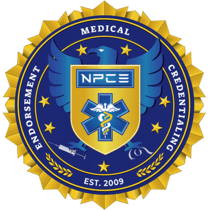Certificate vs Certification
Certificate vs. Certification in Phlebotomy and Allied Health: What`s the Difference?


If you are exploring a career in phlebotomy or allied health sciences, you have likely come across terms like certificate and certification. While they sound similar, they carry very different meanings—especially when it comes to employment, advancement, and credibility in the healthcare industry.
At NPCE (National Phlebotomy Certification Exam), we frequently receive questions about the difference. Understanding the distinction between a certificate and a certification is essential to making informed career decisions—and ensuring you meet employer requirements.
Let us break down what each term means, how they affect your career path, and why certification is usually the key to long-term success in phlebotomy.
🎓 What Is a Certificate in Phlebotomy or Allied Health?
A certificate is typically awarded after completing an educational program or course. These programs are often offered by:
- Community colleges
- Vocational schools
- Technical training centers
- Online training platforms
A certificate confirms that you have successfully completed the coursework and clinical practice, such as:
- Venipuncture techniques
- Anatomy and physiology
- Safety and infection control
- Basic lab procedures
🔍 Example: Completing a 10-week phlebotomy training course at a technical college may earn you a “Certificate of Completion.”
But here is the catch: a certificate does not mean you are certified.
🏅 What Is a Certification in Phlebotomy or Allied Health?
A certification is awarded by a recognized certifying body, such as NPCE, after you meet certain eligibility requirements and pass a professional exam. Certification is a nationally recognized credential that proves your competency to employers and regulatory agencies.
Certification typically includes:
- Verification of hands-on training
- A formal, proctored exam
- Renewal requirements (e.g., continuing education or re-testing every 1–2 years)
✅ Example: Passing the NPCE exam makes you a Certified Phlebotomy Technician (CPT), a designation that’s recognized by employers across the U.S.
⚖️ Certificate vs. Certification: What is the Difference?
| Aspect | Certificate | Certification |
|---|---|---|
| What it proves | You completed a training course | You are professionally competent |
| Who grants it | School or training provider | National certification organization (e.g., NPCE) |
| Requires an exam? | Usually no formal exam | Yes – standardized exam is required |
| National recognition | Limited | Widely recognized across healthcare |
| Employer required? | Sometimes | Often required for employment |
| Renewable? | No | Yes – requires periodic renewal |
💼 Why Certification Matters More to Employers
Most healthcare employers require certification, not just a certificate. Certification shows that:
- You have been evaluated by a neutral third party.
- You meet nationally accepted clinical standards.
- You are dedicated to ongoing education and compliance.
Without certification, even if you’ve completed a training course, you may find it difficult to get hired or promoted—especially in hospitals, labs, or diagnostic centers that must meet strict regulatory standards.
🔒 NPCE: Your Trusted Path to National Phlebotomy Certification
NPCE is one of the most recognized and trusted names in phlebotomy and allied health certification. With an NPCE certification, you gain:
- National recognition from healthcare employers
- Access to continuing education
- Fast online verification for employers and HR teams
- Professional credibility in clinical settings
Whether you’re just finishing your training program or already working in the field, NPCE offers accessible, affordable, and respected certification exams designed for career-minded healthcare professionals.
🧪 The Allied Health Perspective: This Applies Beyond Phlebotomy
The certificate vs. certification distinction is important not just in phlebotomy, but in other allied health fields too, including:
- Medical assistants
- EKG technicians
- Patient care technicians (PCT)
- Paramedical Mobile Insurance Examiners
- Medical Lab Assistants
- Medical Office Managers
- Phlebotomy and Medical Assistant Instructors
Across these roles, employers are increasingly requiring certifications from recognized bodies, not just classroom-based certificates.
✅ Final Thoughts: Know the Difference, Choose the Right Path
A certificate proves you have completed education or training.
A certification proves you have demonstrated professional competency through a national exam.
If your goal is to build a reliable, respected, and rewarding healthcare career, certification is the credential that opens doors.
Start strong by completing your training—but finish strong by earning your NPCE certification.
Ready to take the next step toward certification?
Visit npce.org to schedule your exam and join thousands of certified phlebotomy professionals across the country.
